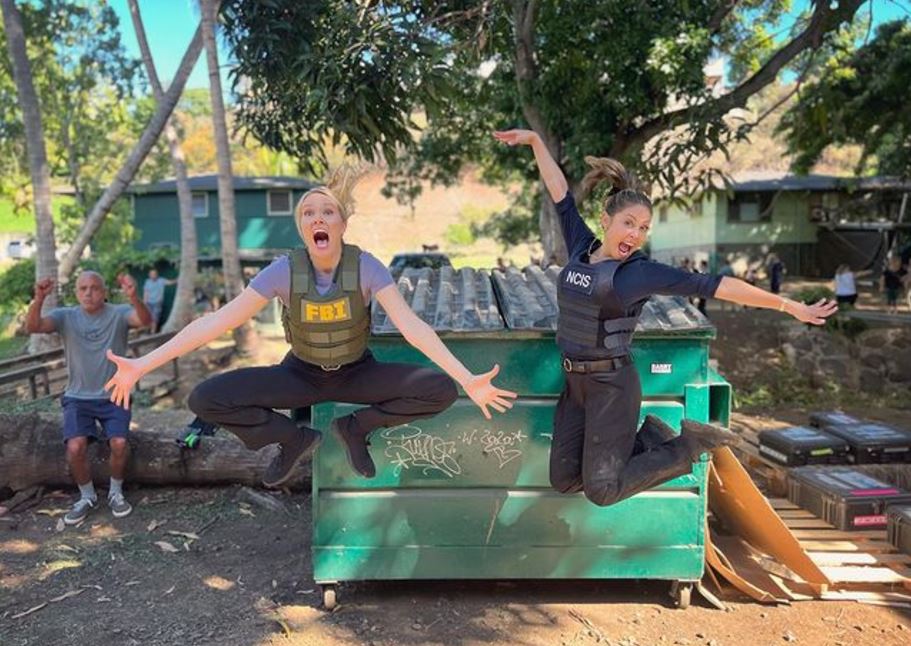
When the spin-off series NCIS: Hawai’i premiered on CBS in 2021, the show was notable for being the first series within the NCIS franchise to have a female lead, with Vanessa Lachey’s NCIS Special Agent in Charge Jane Tennant, who leads a team of special agents at the field office in Hawaii. However, NCIS: Hawai’i, which is the fourth series in the franchise and spans three seasons, now has the dubious distinction of becoming the shortest-lived series within the franchise following the show’s surprising cancelation.
Moreover, the abruptness of the cancelation decision meant that NCIS: Hawai’i was denied the opportunity to provide the same series-ending closure that was afforded to previous spin-off shows NCIS: Los Angeles and NCIS: New Orleans, which ran 14 and seven seasons, respectively, before their cancelations.
With the cancelation of NCIS: Hawai’i, the lone existing spin-off series is NCIS: Sydney, the first series to be set outside the United States, which was recently renewed for a second season. The cancelation of NCIS: Hawai’i resulted from a combination of factors, including flat ratings, high production costs, and the need for CBS to make room on its increasingly crowded and deep schedule, which includes the upcoming prequel series NCIS: Origins.
Let’s face it – when a new NCIS spin-off launches, fans expect it to stick around for a while. But NCIS: Hawai’i? It didn’t even get the chance to find its rhythm. With only three seasons in the bag, CBS abruptly pulled the plug, leaving fans scratching their heads and asking, “Why so fast?” Let’s dive deep and uncover why NCIS: Hawai’i became the shortest-lived series in the NCIS universe.
A Quick Overview of NCIS: Hawai’i
A Fresh Start in Paradise
The show premiered in September 2021, bringing a tropical twist to the beloved crime franchise. Set against the stunning backdrop of Oahu, it followed Jane Tennant (played by Vanessa Lachey), the first female lead in the NCIS franchise. It promised a mix of military intrigue, criminal investigations, and team dynamics with a diverse cast.
Ratings Started Off Strong… Sort Of
The premiere drew in solid viewership, but not record-breaking. While it pulled decent numbers compared to other CBS shows, it didn’t quite match up to the early seasons of NCIS, NCIS: Los Angeles, or even NCIS: New Orleans.
Hitting the Ratings Wall
Declining Viewership Was Inevitable
In the world of network television, it’s all about the numbers. Unfortunately, NCIS: Hawai’i couldn’t maintain a strong enough audience. According to Nielsen, the ratings dropped steadily after its first season. By season three, it was lagging behind nearly every other CBS drama.
The Streaming Dilemma
Unlike its predecessor series that thrived during peak network television years, NCIS: Hawai’i had to compete with streaming giants. Shows like The Night Agent, Reacher, and Outer Banks ate up market share and grabbed younger viewers.
Behind-The-Scenes Trouble in Paradise
Creative Shake-Ups Didn’t Help
There were murmurs about behind-the-scenes creative differences and struggles with scripting direction. Even though the show had a strong cast, the writing often felt… off. Plots were formulaic. Character development was slow. Viewers noticed.
Budget Constraints Played a Role
Filming in Hawai’i isn’t cheap. And with ratings not justifying the high cost of production, the network had to weigh its options. In the end, canceling it was probably a financial decision as much as anything else.
Franchise Fatigue is Real
Too Many NCIS Shows?
At one point, CBS had NCIS, NCIS: LA, NCIS: New Orleans, and NCIS: Hawai’i all on air. That’s a lot. Audiences started feeling burned out. And when it came time to trim the lineup, the newest addition – and arguably the weakest – was the obvious choice.
The Writers’ and Actors’ Strikes Didn’t Help
The 2023 strikes brought the entire TV industry to a grinding halt. Delays meant loss of momentum. When CBS returned to programming, they needed to focus on the strongest horses in the stable. NCIS: Hawai’i didn’t make the cut.
Vanessa Lachey Deserved Better
Breaking Barriers, Facing Backlash
Vanessa Lachey made history as the first female lead in an NCIS series. And she absolutely gave it her all. But some parts of the fandom weren’t receptive. Social media was mixed — with support and criticism often colliding online.
A Great Lead Stuck in a Flawed Show
Lachey had charisma. But she was limited by bland writing and uneven story arcs. Many fans felt she was carrying the show on her back, without the support of solid writing or plot twists to help her shine.
Comparisons to Other Spin-Offs Were Inevitable
NCIS: LA vs NCIS: Hawai’i
NCIS: LA had deeper character arcs, better chemistry, and a more compelling storyline. Hawai’i always felt like it was playing catch-up.
New Orleans Had a Stronger Identity
NCIS: New Orleans had a unique vibe – gritty, soulful, and emotionally rich. Hawai’i had the scenery, but lacked the emotional punch.
Social Media Reaction Was Brutal
When the cancellation hit, fans weren’t quiet. Hashtags like #SaveNCISHawaii and #JusticeForJane popped up overnight. But viral outrage doesn’t always translate into enough numbers to justify renewal.
CBS Is Betting on Other Horses
CBS is in a new era. With franchises like FBI, Tracker, and Fire Country pulling in massive numbers, executives had to prioritize. Unfortunately, NCIS: Hawai’i just didn’t make the high-performance cut.
The Problem with Playing It Safe
The show rarely took risks. Each episode followed a predictable formula. Viewers today crave bold storytelling. Unpredictable arcs. Emotional depth. NCIS: Hawai’i didn’t quite deliver.
Will There Be a Spin-Off Resurrection?
Never Say Never in Television
Just because it’s canceled doesn’t mean it’s gone forever. We’ve seen shows like Brooklyn Nine-Nine and Lucifer saved by fan outcry and streaming platforms. Could NCIS: Hawai’i get a second life?
Lessons Learned from the Fastest NCIS Cancellation
-
Don’t underestimate franchise fatigue
-
Strong leads need strong writing
-
High production costs must match high ratings
-
You can’t coast on name recognition alone

What’s Next for the NCIS Franchise?
Despite this stumble, NCIS isn’t going anywhere. With the original still thriving and new projects like NCIS: Origins in the pipeline, the franchise is simply evolving. It’s about quality over quantity now.
Final Thoughts
NCIS: Hawai’i had promise. A bold location. A diverse cast. A groundbreaking female lead. But in the fast-paced, competitive world of modern television, that’s not always enough. Ratings, relevance, and risk-taking matter. And sadly, NCIS: Hawai’i just couldn’t hit all three.